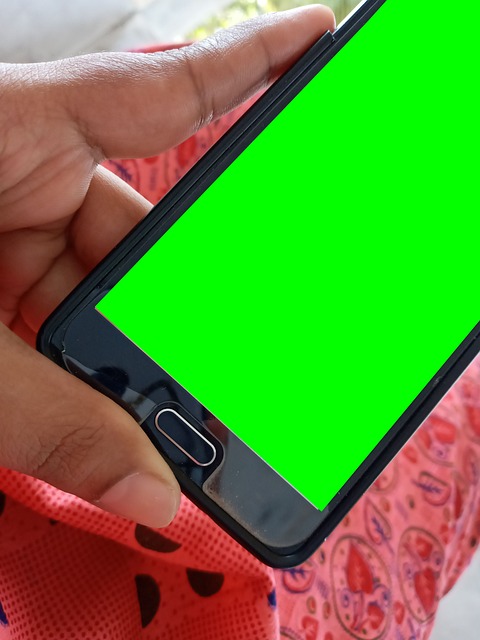In West Virginia, state laws protect consumers from unsolicited text messages (spam texts) through Do Not Call regulations and anti-spam legislation. Residents can take action by blocking numbers, suing for damages, or reporting unwanted texts to specialized lawyers or law firms. These professionals guide clients on their rights, helping them navigate legal challenges and potentially seek compensation. Consulting a spam texts lawyer in West Virginia ensures compliance with state laws and effective resolution of spam issues.
West Virginia consumers, beware of unsolicited text messages! This guide explores the legal landscape surrounding spam texts in the Mountain State. Understanding your rights is crucial, especially with the proliferation of unwanted marketing messages.
Learn about West Virginia’s anti-spam laws and discover what constitutes a violation. We’ll break down consumer rights and provide strategies for dealing with spams. If you need legal counsel, this article also guides you towards finding a spam texts lawyer in West Virginia specializing in these laws, ensuring your protection against invasive messaging.
Understanding Unsolicited Text Messages in West Virginia
In West Virginia, unsolicited text messages, often referred to as “spam texts,” are regulated by state laws designed to protect consumers from unwanted and invasive messaging. These laws aim to balance the right to communicate with the need for individuals’ privacy and peace of mind. A spam text is generally defined as any message sent via mobile text that a recipient has not explicitly agreed to receive. This includes promotional messages, advertisements, or any content from businesses or organizations without prior consent.
West Virginia’s Do Not Call laws extend to text messaging, empowering residents to take action against unwanted spam texts. If you receive unsolicited text messages, you have the right to report them and seek legal assistance from a qualified lawyer in West Virginia specializing in spam call laws. Such a lawyer can guide you on blocking numbers, suing for damages, or negotiating with companies engaging in these practices. Remember, knowing your rights and understanding the state’s laws against spam texts is crucial in navigating this modern communication challenge.
Legal Framework: West Virginia's Anti-Spam Laws
West Virginia has implemented a robust legal framework to address unsolicited text messages, commonly known as spam texts. The state’s Anti-Spam Laws are designed to protect consumers from unwanted and deceptive messaging practices. These laws provide clear guidelines on what constitutes permissible communication and set strict penalties for violators.
Under West Virginia law, businesses and organizations are prohibited from sending spam texts unless the recipient has consented or requested such messages. This includes marketing, advertising, or promotional text communications. Anyone found guilty of violating these rules may face substantial fines and legal repercussions. As a result, those who require assistance in navigating these laws can consult a reputable spam texts lawyer or spam calls attorney in West Virginia to ensure compliance and protect their rights.
Rights of Consumers: What You Need to Know
In West Virginia, consumers have certain rights when it comes to unsolicited text messages, often referred to as “spam texts.” According to the state’s spam call laws, businesses and organizations are prohibited from sending promotional or advertising text messages to individuals who have not explicitly agreed to receive them. This means that if you’ve never provided your number for marketing purposes, you should not be receiving spam texts.
If you’re facing an influx of unwanted spam texts, there are steps you can take. Consulting with a lawyer specializing in spam call laws and based in West Virginia can help you understand your rights and options. These legal professionals can guide you on how to file a complaint with the appropriate authorities and potentially seek compensation for any harassment or inconvenience caused by these unsolicited messages. Remember, knowing your rights is essential, especially when dealing with persistent spam texts.
Navigating Spams: When and How to Take Action
Navigating Spams: When and How to Take Action
In West Virginia, unsolicited text messages, commonly known as spam texts, are regulated by state laws aimed at protecting consumers from unwanted communication. If you’re receiving spam texts, it’s essential to understand your rights and options. A lawyer specializing in spam texts or a law firm focusing on Do Not Call regulations can provide guidance on the best course of action.
In many cases, taking immediate action is beneficial. You can start by blocking the sender’s number using your phone settings. Additionally, reporting these messages to your service provider may trigger their intervention and help prevent further spamming. For more severe instances or when unsure about legal recourse, consulting with a West Virginia spam texts attorney is advisable. They can advise on whether to proceed with a formal complaint or take legal action against the perpetrators.
Choosing the Right Lawyer: Spam Texts and Beyond in WV
When dealing with issues related to unsolicited text messages, or “spam texts,” in West Virginia, choosing the right legal counsel is paramount. Many law firms in WV specialize in consumer protection and telecommunications laws, making them ideal candidates to represent you against spam calls and texts. These experts can navigate the complex landscape of Spam Call laws in West Virginia, which are designed to protect residents from unwanted marketing messages.
A lawyer for spam texts in West Virginia will have in-depth knowledge of the Do Not Call laws and regulations specific to the state. They can help you understand your rights, take appropriate action against violators, and even seek compensation if necessary. Whether it’s representing clients in legal proceedings or negotiating settlements, these attorneys are equipped to handle a range of cases involving spam texts, ensuring that your interests are protected under WV’s consumer protection laws.






